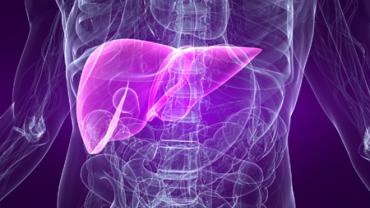
According to new research published in Cellular and Molecular Gastroenterology and Hepatology non-alcoholic steatohepatitis (NASH) is associated with intestinal hyperpermeability which may worsen liver disease. NASH is the more severe form of non-alcoholic fatty liver disease (NAFLD) that can lead to liver fibrosis and cirrhosis.
Lead study author Jay Luther MD from Massachusetts General Hospital stated "Our study strengthens the clinical association between intestinal permeability and NASH although we were unable to identify a mechanism." Luther and his fellow researchers are hoping that their findings spark interest in further investigations into the liver-gut axis.
In this study researchers performed a meta-analysis examining patients with NASH and then tested their hypothesis using an animal model which allowed them to eliminate possible confounders of the data such as medical comorbidities and antibiotic exposure. They found that 40% of patients with NAFLD had increased intestinal permeability in contrast to only 6.8% of healthy controls. In addition NASH patients showed a stronger association nearly 50% with altered intestinal permeability. The animal studies found evidence for liver injury preceding increases in intestinal permeability. This data suggest that the gut-liver axis plays a role in the development of NASH.
"Hepatologists are currently ill-equipped at identifying the patients who are most likely to develop NASH. This is a pressing clinical challenge as these patients are at greater risk for liver-related adverse events" stated Rebecca G. Wells MD associate editor of Cellular and Molecular Gastroenterology and Hepatology. "This well-designed study enhances our understanding of the pathophysiology of NASH which is critical to help identify high-risk NAFLD patients and therapeutic targets."
Fatty liver disease and NASH have reached epidemic status in the U.S. and the rest of the world. They are associated with diabetes and obesity so understanding their development is becoming increasingly more important.
Probiotics and liver disease
Probiotics restore the gastrointestinal barrier function modulate the immune system and inhibit the proliferation of harmful bacteria. They have been shown to help reduce liver fat and improve liver enzymes (Wai Sun Wong Ann Hepatol 2013). Probiotics are likely most effective by preventing bacterial translocation and reducing the effects of the intestinal microbiota on the liver.
By Dr. Michael Jurgelewicz